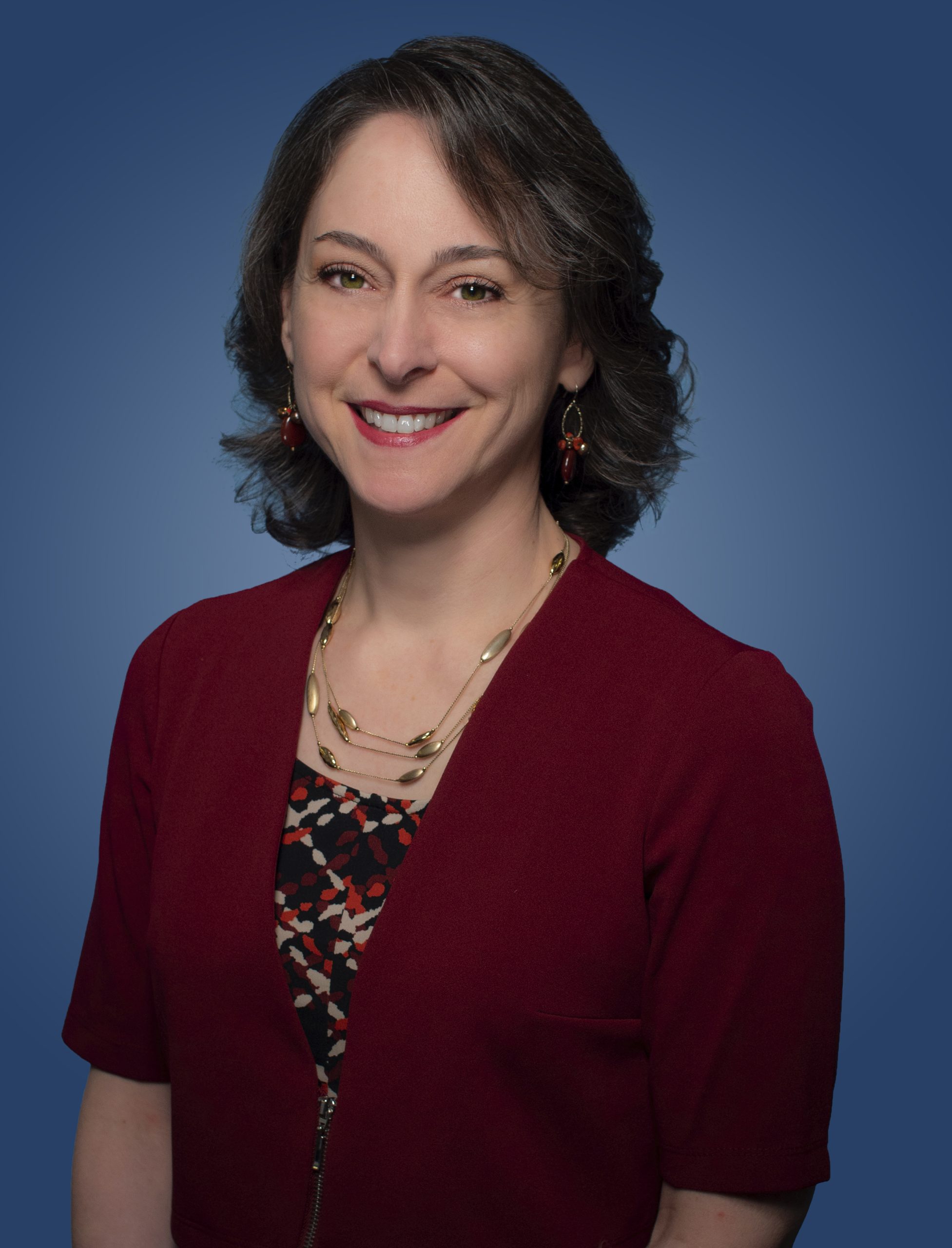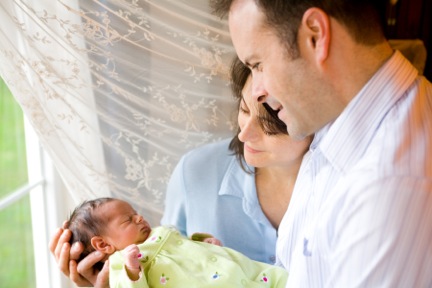- Featured Favorites
Experiencing Freedom
by Camille Pauley
I was 38 years old when I married, and presumed that I was well past my best childbearing years. So my husband and I didn’t give much thought to having babies. We were running a national pro-life organization, traveling and speaking around the world, and living lives of missionary zeal.
I remember taking an NFP class, and thinking – I don’t really need this, do I? I mean, what are my chances of conceiving? But we learned NFP anyway, figuring that at least we would have a better understanding of how my body worked.
Now, six years and six babies later, my husband and I are absolutely convinced that NFP is the way to go. We’ve used it in every conceivable way – to postpone having children during a difficult time, to become pregnant, and to ultimately leave everything up to God.
Although four of our children decided they weren’t interested in tinkering around on earth, and escaped to heaven ahead of their parents, we have two beautiful daughters who chose to stick around – the most recent arriving a couple of days after Christmas. She’s lying at my side making endearing baby dinosaur sounds as I write this.
When I stare at my daughters and contemplate the unique mysteries that they are, what strikes me the most is how emotionally and psychologically free children are. Three-year-old Juliette lives out every part of her human nature with complete acceptance and wonder. Whether it’s time for bath, school, food, nap, or play, she takes full advantage of every opportunity to explore her world and allow natural experiences to unfold. She’s even taken potty training in stride, fascinated that what goes in must come out.
As for newborn Elizabeth, she sleeps, eats, and grunts with the best of them, never worried that her human needs might offend someone.
These two little people are such contradictions in our modern world, where we are taught to be ashamed of our own natures and the work our bodies were designed to perform. We contracept, sterilize, mutilate, and abort our bodies into perverted shadows of what they were meant to be, all the while thinking that we are freeing ourselves to live more perfect lives.
But the human body is a marvelous creation when allowed to naturally actualize. A woman’s body is made to be with a man’s. It is made to bear children, to suffer in labor, to grow fat with milk, and to nurse. It is created to hug, hold, kiss, and comfort. It’s made to endure long nights without sleep, and long days of serving others. With every diaper she changes, every hunger she nurses, and every mewling she comforts, her body is made to reveal Christ’s self-sacrifice on the cross. As our arms grow tired, our knees give out, our minds become forgetful, and our energy depletes, the cross reminds us of what the living is for – and every moment of suffering is worth it.
All of the physical discomforts, pains, and sacrifices that come with bearing and raising children are part of the human experience – and I wouldn’t want to miss out on a single one of them, because life must be fully lived to be fully appreciated. And living life fully means using up our bodies for love.
But this culture is filled with souls who reject this truth, at their own peril. I know many people – single and married – who believe that fully living life is about having as many fleeting and artificial experiences as possible.
Take my younger friend, “Jill” as an example. Jill is in her late 20s, married, and Catholic. She goes to church regularly, but is contracepting because she and her husband want to “experience life first.” This means postponing children in order to accumulate wealth, buy a huge home, fill it with everything they’ve ever dreamed of having, travel to exotic places, and try a few ultimate experiences, like deep sea diving, crocodile hunting, and sleeping under the stars in a Bedouin tent in Jordan.
I have to say, those things do sound pretty cool. Especially the Bedouin tent thing. But when used as substitutes for real living, they are no more than temporary distractions which attempt in vain to fill the void left when we run from the relentless voice of our own natures.
People like Jill tend to look at my husband and me, and shake their heads, donning the kind of smile that says, “I know deep down inside, you wish you could have my life.” What they mean is, “It’s too bad that now you have to use up your body tending to the demands of a family and children, instead of being able to go to the movies and bungee jump like I get to do.”
This fear of human nature is primarily the result of a culture that defines freedom as meaning “freedom from anything that is getting in the way of my material and ego goals.” In other words, most people feel free only to the extent that they can escape from whatever they believe is holding them back from material and ego advantages, which means escaping duties, responsibilities, other people, commitments, etc.
Almost any kind of commitment – whether to a worthy goal such as school, career, or to another person in a relationship – will require self-sacrifice, which means postponing or sometimes giving up completely those things that are pleasurable, because we realize it’s necessary for the greater good of the commitment that we’ve made. But a person who has abandoned her natural desire to use up her body for love cannot appreciate this, because her goal is to gain material and ego pleasure right now. Such a mentality can be especially destructive when it comes to the commitment of marriage. There are many things that a husband and wife must sacrifice if they want to promote the greater good of the union they’ve formed.
A far healthier way of viewing freedom is as “freedom for doing the good” or “freedom to do the good.” People with this view feel free when they are able to pursue their fullest human potential, which they believe is love (gift of self to others). Freedom is seen as being able to help others and promote the common good for family, friends, school, the community, and even the world.
These people do not see commitments and self-sacrifice as constraints on freedom. Instead, they will see such things as essential ingredients for achieving their highest potential. This doesn’t mean that self-sacrifice is easy. Any commitment will bring with it times of adversity, boredom, emotional lows, and stress that seem to test the strength of the commitment. But these people love the object or goal of the commitment so much that it’s worth the sacrifice.
My friend Jill suffers from what so many of her peers suffer from – the gripping fear that she has to be in control of everything – her future, her destiny, her plans, her fertility, and whether or not the time is right for having children. She thinks she needs this control because it allows her to escape the natural vocation that her body is yearning to live out. But ultimately, you can see the deeper fear and depression that lurks within her soul, as she constantly second-guesses her own plans, frets about the “right time” to have children, and wonders if there is more to life than crocodile hunting.
NFP allowed my husband and I to live fully in every moment, whether or not our “plans” were fulfilled. We always knew we weren’t in the driver’s seat, so to speak, and that God would ultimately decide whether or not new life would be achieved. That kind of freedom is worth more than a million worldly experiences.
If we want our youth to know this kind of freedom, to experience the true fullness of life, and to avoid missing out on a single gift that being human has to offer, we need to teach them what real freedom is, what true happiness means, and what being human is all about. An exceptional tool for doing this is the Principles and Choices curriculum for high school students, which can be explored at www.principlesandchoices.com.
By attending to this kind of education, we will open the hearts of young people to embrace the dignity and goodness of their human natures, and will pave the way for them to fully live out their human sexuality with freedom and joy.
About The Author



